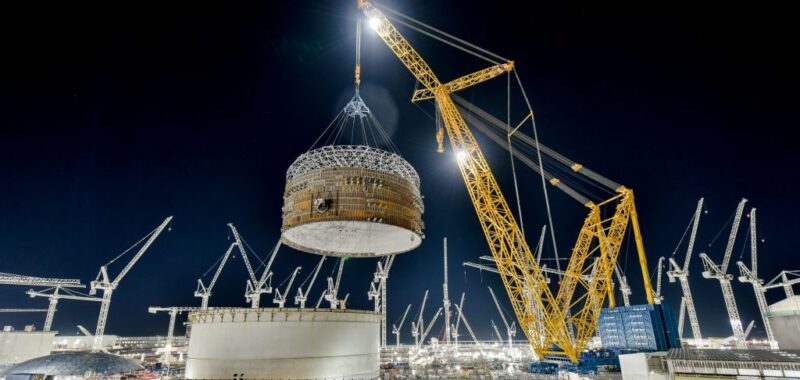Legal challenges against major infrastructure projects will be limited to one attempt, the prime minister has pledged.
Sir Keir Starmer revealed on Thursday (23 January) plans to speed up the planning process by stopping small pressure groups using the courts “to obstruct decisions taken in the national interest”.
The Planning and Infrastructure Bill – to be introduced in March – will limit objections to a single legal challenge.
The government aims to scrap the current initial ‘paper permission’ stage of a legal challenge to a planning permission granted to a nationally significant infrastructure project (NSIP).
Primary legislation will be changed so a judge in an oral hearing at the High Court could strike out a case as totally without merit with no right of appeal.
“A request to appeal…will be allowed for other cases,” Starmer added.
Starmer said the government’s new proposal would safeguard “protections against genuine issues of propriety” while ending “challenge culture by taking on the NIMBYs”.
His announcement was derived from an independent review of legal challenges to infrastructure projects, led by Charles Banner KC.
Banner’s report said that reducing the number of opportunities to challenge would speed up the process.
However, the lawyer noted that “allowing no scope for the refusal of permission to be reconsidered by another judge will inevitably carry the risk that mistakes are made, and that justice is not done”.
He cited figures showing that in around half of the NSIP cases where the claimant had appealed against the refusal of permission by the High Court, Appeal Court judges overturned the decision.
But Starmer said the reforms would help speed up major projects including nuclear plants, trainlines and windfarms.
His announcement cited the Sizewell C nuclear power station and the A47 National Highways project as examples where lengthy legal challenges were ultimately dismissed.
“On average, each legal challenge takes around a year and a half to be resolved – with many delayed for two years or more,” Starmer said.
Balfour Beatty chief executive Leo Quinn welcomed the announcement as “a strong start”.
He added: “Today’s announcement is a vital step towards kickstarting major infrastructure projects more swiftly, while keeping essential safeguards in place.”
Starmer’s statement is the latest in a series of government initiatives to facilitate the implementation of infrastructure projects.
Yesterday, environment secretary Steve Reed confirmed details of the new Nature Restoration Fund aimed at accelerating housebuilding and infrastructure projects.
Natural England will be stripped of decision-making on nutrient neutrality risks at development sites. Mitigation and compensation costs for protected sites will be changed to a single payment by developers.
This measure is also to be included in the Planning and Infrastructure Bill.
Also yesterday, the prime minister confirmed in a written statement that the government’s National Infrastructure and Service Transformation Authority (NISTA) will start work in April to oversee a 10-year plan to deliver major projects.
The organisation will take over the responsibilities of the Infrastructure and Projects Authority and the National Infrastructure Commission (NIC).
Starmer also announced Darren Jones, the chief secretary to the Treasury, will be in charge of ensuring it delivers.
“NISTA will be a joint unit of HM Treasury and the Cabinet Office,” the prime minister said.
Last October, chancellor Rachel Reeves announced that NIC chair Sir John Armitt would have his term extended until July this year.
Armitt last week warned MPs against a decision to bring control of HS2 back into government. He said it was less likely to mitigate risks with the project and could increase costs.
He added that what the rail industry and contractors were looking for was “a proper long-term plan on how the money is going to be spent”.

